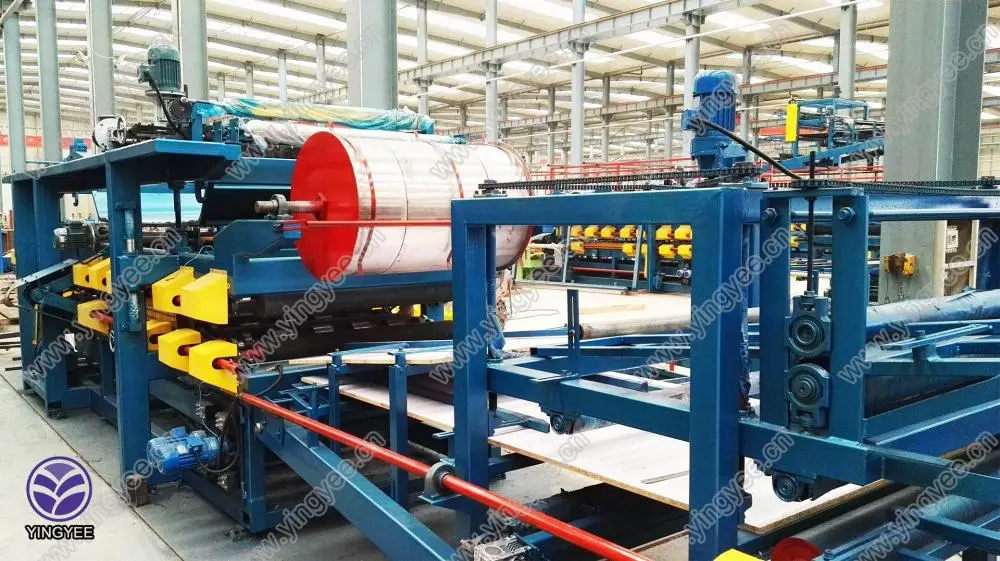
The Steel Tube Mill An Essential Component of Modern Manufacturing
In the ever-evolving landscape of modern manufacturing, the steel tube mill stands out as a critical facility for the production of steel tubes, which play a vital role in various industries. From construction to automotive, and even in the oil and gas sector, steel tubes are indispensable due to their strength, durability, and versatile applications. This article delves into the functioning of steel tube mills, the technology involved, and their significance in today’s economy.
Overview of Steel Tube Production
Steel tubes are manufactured through a process involving the heating, forming, and welding of steel strips or coils. The production is typically carried out in steel tube mills, which are equipped with advanced technology to ensure efficiency and product quality. The process begins with the selection of high-quality raw materials, typically carbon or alloy steel, which are then subjected to various treatments to achieve the desired properties.
The Manufacturing Process
1. Raw Material Preparation The process commences with the preparation of steel strips or coils. These raw materials are unwound and fed into the mill.
2. Forming The steel strip is then shaped into a tubular form using a series of rolls, which gradually bend the strip into a circular or square configuration, depending on the desired tube shape. This forming process is crucial as it determines the dimensions and surface quality of the final product.
3. Welding Once the steel strip is shaped into a tube, it is then welded. There are various welding methods employed in steel tube mills, with the most common being the high-frequency induction welding (HF welding) and submerged arc welding (SAW). Each technique offers its own set of advantages in terms of strength, speed, and application suitability.
4. Finishing Following the welding process, the tubes undergo several finishing treatments, which may include cold drawing, heat treatment, surface cleaning, and coating. These processes enhance mechanical properties, improve dimensional accuracy, and provide corrosion resistance, thus ensuring that the tubes meet stringent industry standards.

5. Quality Control Quality assurance is paramount in the manufacturing of steel tubes. Each batch is subjected to rigorous testing, including dimensional checks, tensile tests, and non-destructive evaluations to ensure that they meet the required specifications and safety standards.
Technological Advancements in Tube Mills
The steel tube mill industry has embraced technological advancements that have significantly increased productivity and efficiency. The integration of automation and digitalization into the manufacturing process has enabled real-time monitoring and control of production parameters, leading to reduced waste and improved product quality.
Moreover, advancements in welding technology have allowed for stronger and more reliable joints, making modern tubes suitable for high-pressure and high-stress applications. Automation has also streamlined the finishing processes, reducing labor costs and improving precision.
Economic Impact and Future Prospects
The significance of steel tube mills extends beyond their role in manufacturing. They contribute substantially to the economy by providing jobs, supporting ancillary industries, and facilitating infrastructure development. The growing demand for steel tubes in sectors such as renewable energy, construction, and transportation is set to propel the steel tube mill industry forward.
Looking ahead, the future of steel tube mills appears promising. As industries continue to innovate and evolve, the demand for high-performance tubular products will rise. Furthermore, a growing emphasis on sustainability is likely to inspire mills to adopt greener practices, such as recycling scrap steel and reducing carbon emissions.
Conclusion
In conclusion, steel tube mills are essential to modern manufacturing, providing the critical components needed across a wide spectrum of industries. With ongoing advancements in technology and an increasing focus on sustainability, the steel tube mill sector is poised for significant growth. As we move towards a more industrialized and sustainable future, the role of steel tubes and their production will continue to be a cornerstone of economic development and innovation.